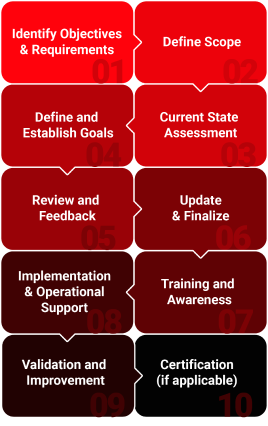Components of PCI-DSS
PCI DSS is a comprehensive set of security standards designed to protect cardholder data. Here are its key components
This includes requirements related to network security, access control, and vulnerability management.
This includes requirements related to encryption, password management, and physical security.
This includes requirements related to system development, maintenance, and testing.
This includes requirements related to access control measures, authentication, and authorization.
This includes requirements related to network monitoring, vulnerability scanning, and penetration testing.
This includes requirements related to firewall configuration, intrusion detection, and data loss prevention.










